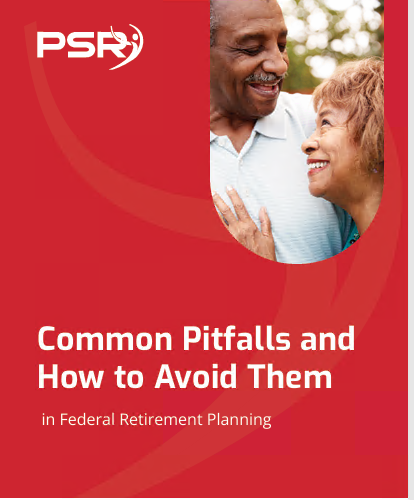Key Takeaways
-
Retiring early as a federal employee comes with both financial benefits and potential drawbacks, making it crucial to weigh your options carefully.
-
Understanding the impact on your annuity, health benefits, and Social Security can help you make an informed decision about early retirement.
The Appeal and the Trade-Offs of Early Federal Retirement
- Also Read: Divorce and Your Federal Pension—What Happens When You Split Assets and How It Could Affect Your TSP
- Also Read: What Happens to Your Federal Benefits After Divorce? Here’s the Lowdown
- Also Read: The Best FEHB Plans for 2025: Which One Fits Your Lifestyle and Budget the Best?
1. Pro: More Time to Enjoy Life
One of the biggest advantages of retiring early is gaining more free time to focus on personal interests, hobbies, and family. If you’ve worked in federal service for decades, the idea of stepping away sooner rather than later can be incredibly appealing. Whether it’s traveling, volunteering, or simply enjoying a slower pace, early retirement offers a chance to focus on life outside of work.
But What’s the Catch?
While more free time is a great perk, retiring early means stretching your savings over a longer period. If you retire before age 62, you may not qualify for the FERS Special Retirement Supplement, which helps bridge the gap until Social Security kicks in. That means relying entirely on your pension and savings for a longer period. Planning ahead is essential to avoid financial strain later in retirement.
Strategies to Make It Work
To make the most of early retirement, consider:
-
Building a robust savings plan before you leave federal service.
-
Exploring investment opportunities that can supplement your pension.
-
Reducing unnecessary expenses and creating a sustainable budget.
2. Con: Reduced Pension Benefits
Your federal pension under FERS (Federal Employees Retirement System) is based on your years of service and your high-3 salary average. The longer you work, the larger your pension. Retiring early could significantly reduce your annuity, making it essential to calculate your expected income before making a decision.
What Does This Mean for You?
If you leave federal service before reaching full eligibility, you may face penalties under the MRA+10 provision. This rule allows retirement as early as the Minimum Retirement Age (MRA), but with a 5% reduction for each year you are under age 62. That’s a big hit to your monthly pension check.
How to Minimize the Impact
-
Delay retirement as long as possible to maximize your pension.
-
Consider working part-time or in a temporary role to supplement income.
-
Evaluate alternative sources of income, such as rental properties or passive investments.
3. Pro: Escape from Job Stress
Federal jobs can be demanding, and if you’re feeling burned out, early retirement might be a welcome relief. Getting out of a high-pressure work environment earlier than expected can improve your mental and physical well-being, allowing you to focus on a healthier lifestyle.
The Reality Check
While leaving job stress behind is appealing, transitioning into early retirement means finding new ways to stay engaged and maintain a sense of purpose. Many retirees struggle with the sudden lack of structure and daily interaction, which can impact mental health over time.
Tips for Staying Engaged
-
Take up new hobbies or volunteer in your community.
-
Join social groups or participate in local activities.
-
Consider a part-time job or consulting work to maintain engagement.
4. Con: Healthcare Considerations
Federal retirees have access to the Federal Employees Health Benefits (FEHB) program, but if you retire before age 65, you won’t yet be eligible for Medicare. That means you’ll need to keep your FEHB coverage, which can become a larger financial burden without an employer contribution to offset costs.
What Should You Plan For?
If you retire before 62, your annuity payments may be lower, making FEHB premiums feel even more expensive. Additionally, some retirees find that without employer-subsidized dental and vision benefits, overall healthcare costs increase.
How to Offset Healthcare Costs
-
Look into high-deductible health plans paired with a Health Savings Account (HSA).
-
Compare FEHB plan options to find the best coverage for your needs.
-
Plan for long-term care insurance if necessary.
5. Pro: Opportunity for a Second Career
Leaving federal service early doesn’t necessarily mean you’ll stop working altogether. Many early retirees pursue second careers, consulting, or part-time work in fields they enjoy. This can provide financial stability while allowing for a more flexible lifestyle.
But What About Your Benefits?
If you take a new job in the private sector, be mindful of how it may impact your federal retirement benefits. Some positions may not offer the same level of healthcare coverage or retirement contributions, so weigh your options carefully.
Making the Most of a Second Career
-
Choose a job that aligns with your interests and lifestyle goals.
-
Use skills gained in federal service to find consulting opportunities.
-
Balance work and leisure to ensure a fulfilling retirement.
6. Con: The Impact on Social Security
Retiring early may affect your Social Security benefits, as they are calculated based on your highest 35 years of earnings. If you stop working too soon, your benefits could be lower than expected.
What Can You Do?
-
Work part-time to continue contributing to Social Security.
-
Delay claiming benefits to maximize monthly payouts.
-
Use other sources of income to bridge the gap until Social Security eligibility.
What’s the Right Decision for You?
Deciding whether to retire early as a federal employee isn’t just about leaving your job—it’s about ensuring long-term financial stability, maintaining access to essential benefits, and preparing for the next phase of life.
Weigh Your Options Carefully
Before making a decision, consider meeting with a financial advisor or a federal benefits specialist. They can help you determine the best time to retire based on your annuity, Social Security eligibility, and healthcare needs. Understanding all aspects of early retirement can prevent financial surprises down the road.
Need help navigating your retirement options? Get in touch with a licensed agent listed on this website for expert guidance.












